
Wordpress is one of the most popular open source platforms in the world used in website application development, so being the owner of this platform is one of the important first steps to start a stable career.
# Understand the operating principles of Wordpress # Master Wordpress from scratch # Organizational structure of Wordpress # Build a perfect website without knowing code
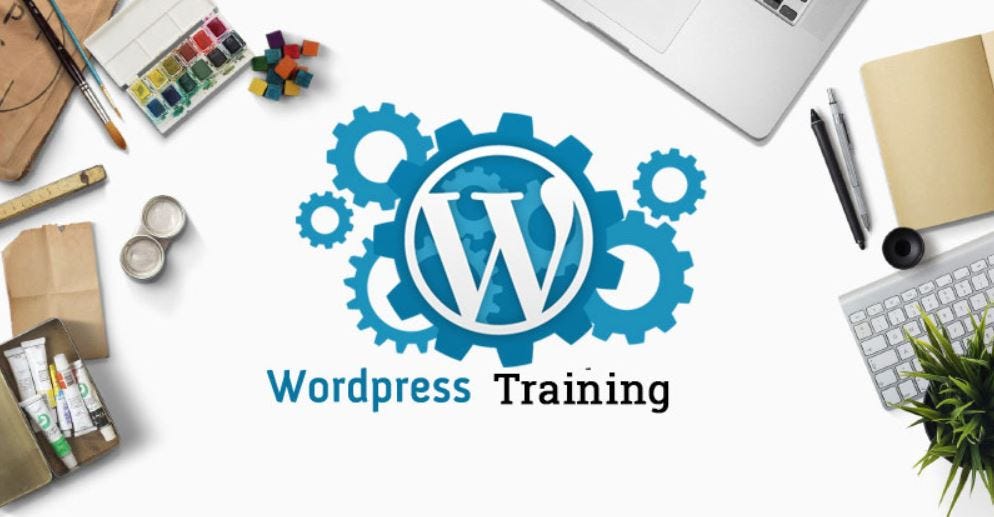
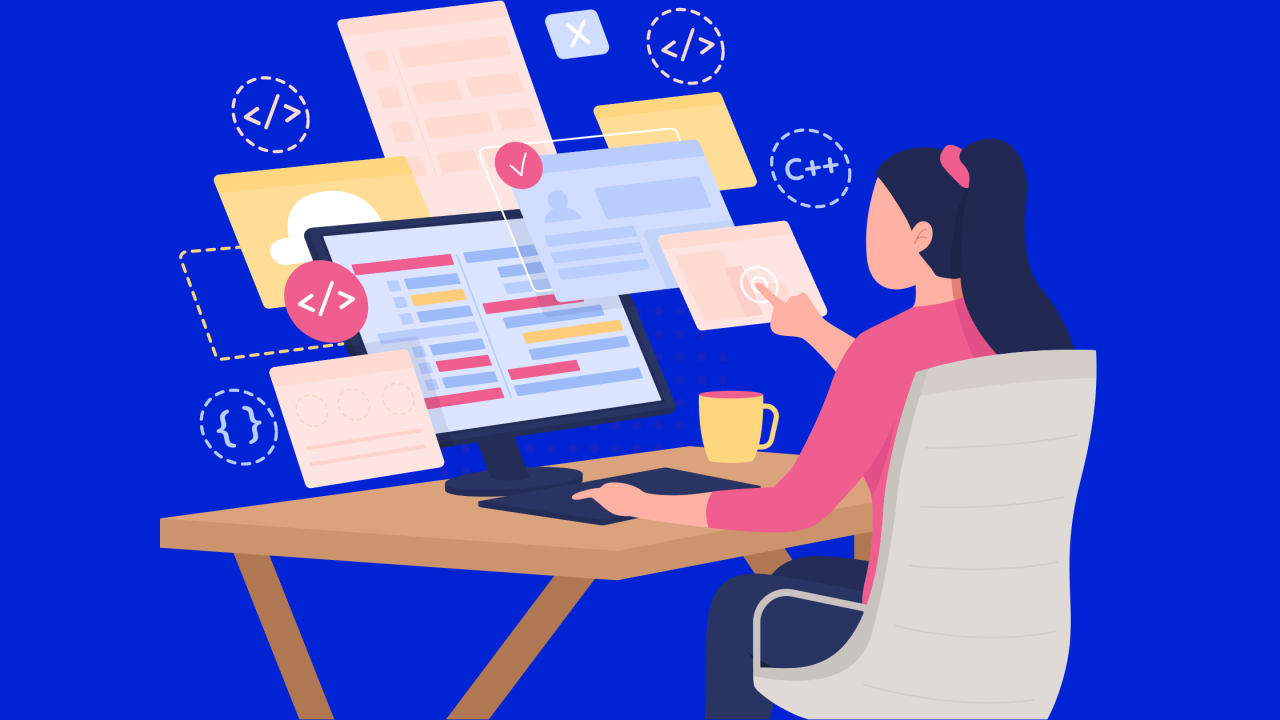
WordPress is the world's most popular web design platform, easy to learn, easy to use. The course is built from basic to advanced, helping students master WordPress step by step.
Students will be guided from installation, using themes, plugins, to custom programming, mastering WooCommerce and SEO. After the course, you can design, manage and develop professional websites yourself.

WordPress powers over 40% of the world’s websites thanks to its flexibility, scalability, and SEO optimization. It’s an ideal platform for individuals, businesses, and developers looking to save money.
Learning WordPress helps you create your own sales website, blog, landing page, e-learning without depending on other programmers. This is a necessary skill to develop your career in the digital age.
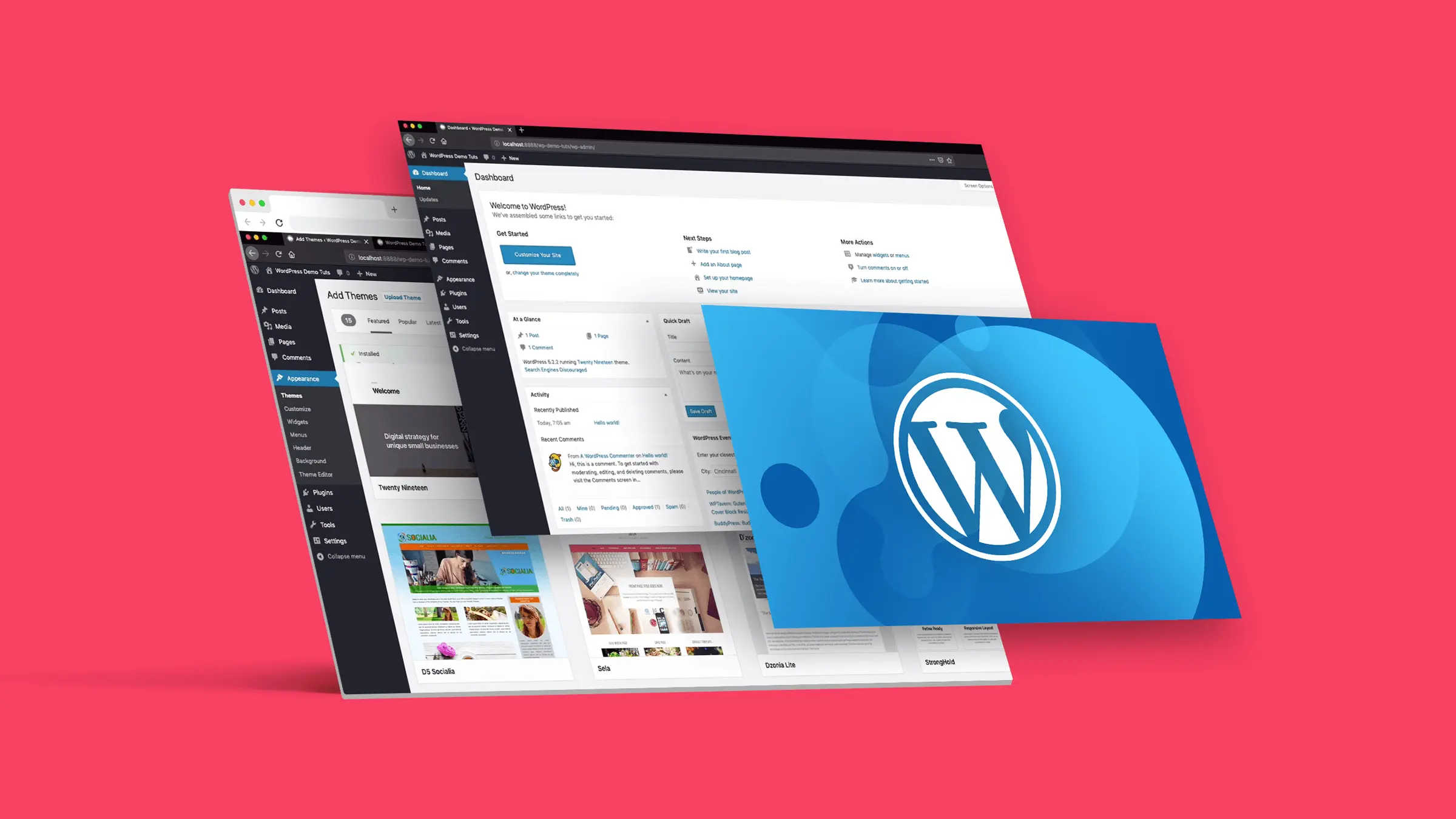
The course is suitable for beginners, IT students, online shop owners, web design freelancers and businesses who want to manage their own website.
The content is designed to be easy to access, no programming background required. Learners can learn and apply in practice, quickly creating websites for work or business.
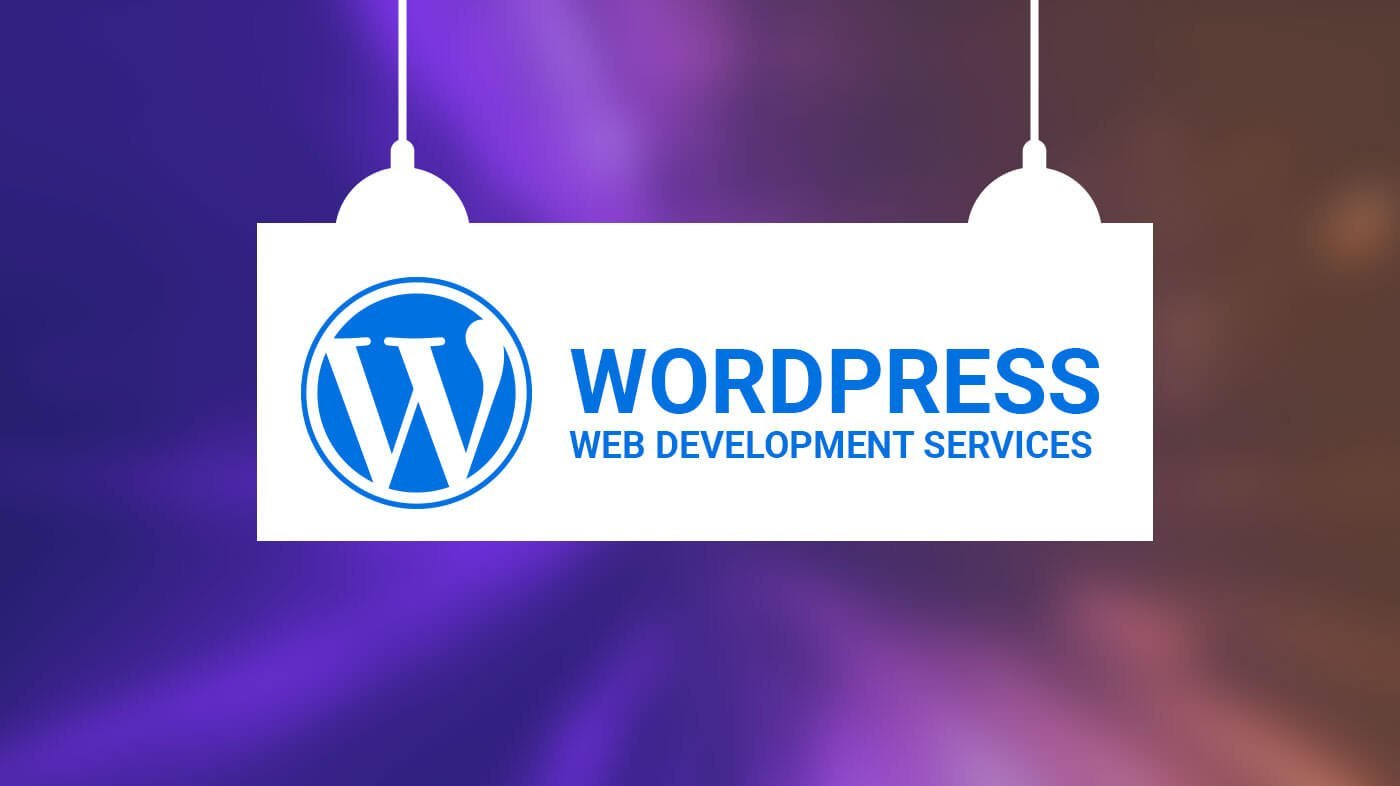
The basics section focuses on installing WordPress, managing posts, pages, menus, using themes and plugins. This is the foundation for students to get familiar with this popular CMS.
Learners will practice directly, understand the WordPress structure, how to customize the basic interface and create a simple website right in the first lessons.
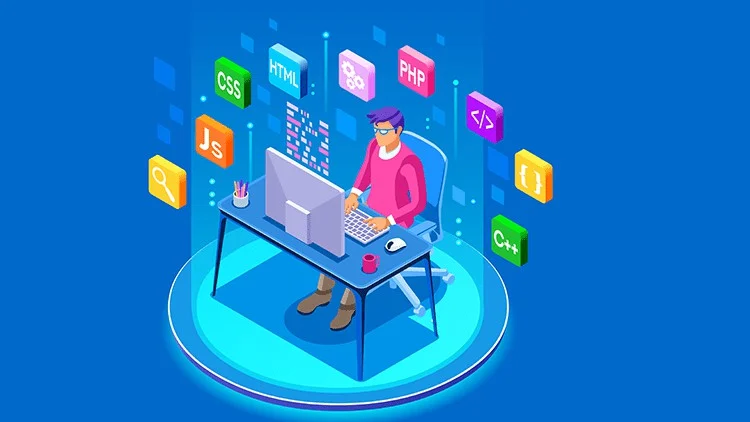
Students are guided in programming themes, plugins, integrating WooCommerce, Elementor and optimizing website security.
In addition to technical aspects, there are also SEO optimization, hosting management, speed optimization, and expanding functions as needed. After this part, you are capable of creating a professional website.
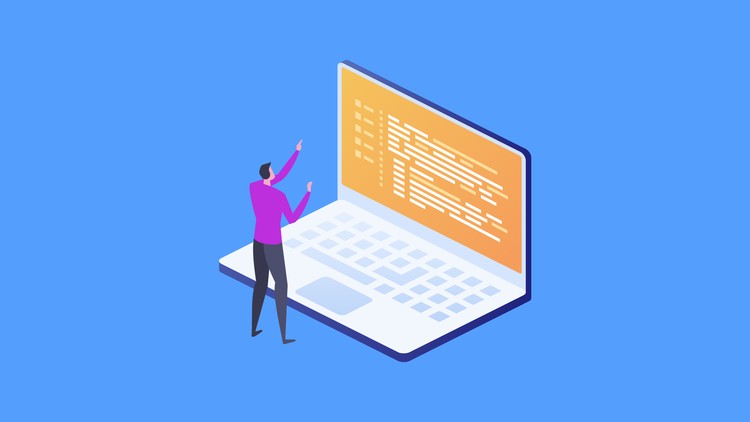
Once you master WordPress, you can build your own website, manage projects, get web design services, or work as a freelancer.
WordPress opens up vast career opportunities, while helping businesses save costs, gain more autonomy in website management and online brand development.
Compared to Joomla and Drupal, WordPress is more user-friendly for beginners. Compared to Wix or Squarespace, WordPress is more flexible and offers more control.
It is a platform that strikes a balance between ease of use and extensibility. Therefore, learning WordPress is a smart choice for both individuals and businesses.
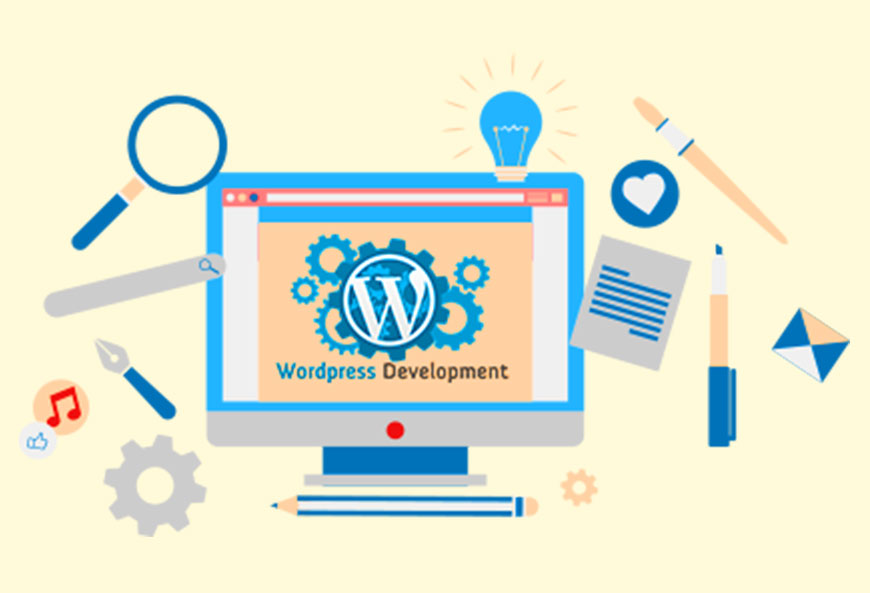
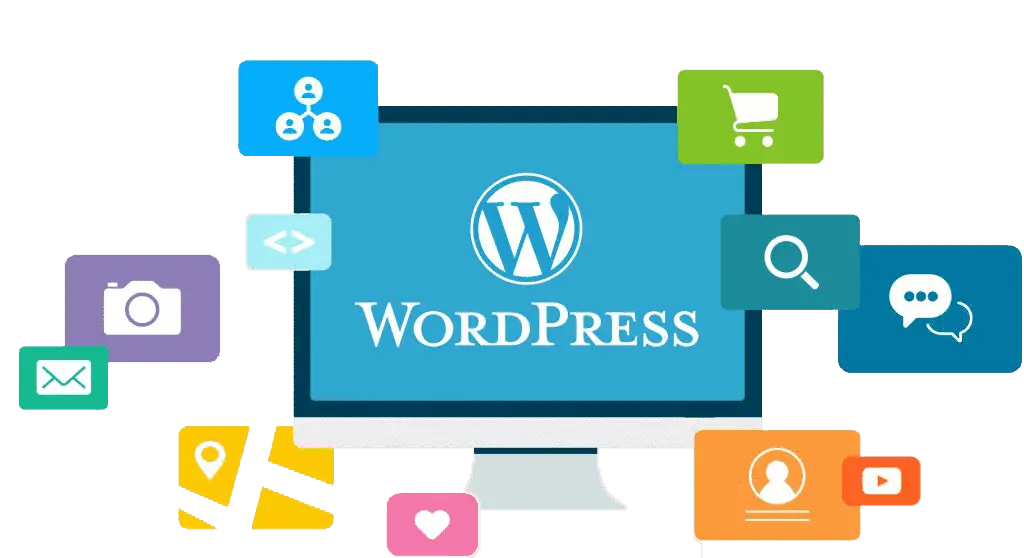
The demand for WordPress staff is always high, especially at web design companies, digital agencies and e-commerce.
Learners can work in a business or become a freelancer, opening their own service. This is a skill that brings sustainable income and easy career expansion.
WordPress is considered easy to learn and easy to approach. Even if you have never coded before, you can still quickly create a complete website after the course.
Intuitive course, many practical examples. Learners can progress quickly after just a few sessions, while gradually upgrading their theme and plugin programming skills.
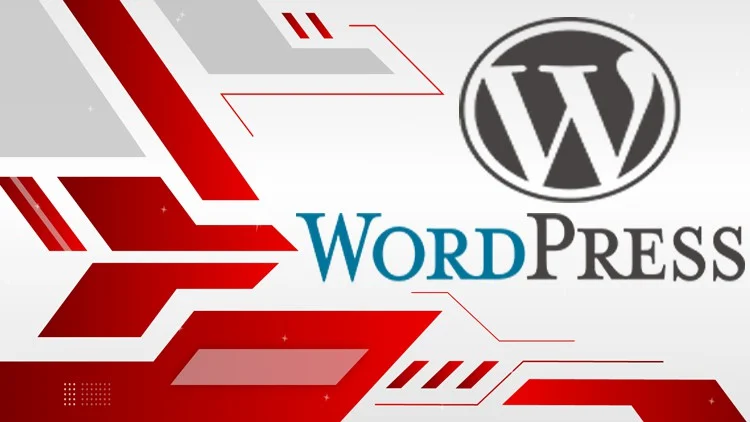

The roadmap from basic to advanced, theory goes hand in hand with practice. Students learn and build real websites to remember knowledge for a long time.
After the course, students will have their own complete website product, with enough knowledge and experience to deploy or receive real projects.
In the context of rapidly developing technology, equipping yourself with a "golden" skill that is highly applicable and has the potential for sustainable development is a smart investment decision. WordPress is one of those skills. It is not just a web creation tool, but a powerful ecosystem that brings outstanding benefits to anyone who masters it. This section will delve into the most compelling reasons for you to start learning WordPress right now, from technological power, career opportunities to financial benefits and autonomy.
To understand why you should learn WordPress, we first need to clearly define what it is. WordPress is a completely free and open source Content Management System (CMS). Simply put, it is a software that helps you create, manage and publish content on the internet easily without having to be a professional programmer.
It is important to distinguish that there are two versions of WordPress:
WordPress.org: This is the “self-hosted” version. You download the source code for free, install it on your own hosting, and have 100% control over your website – from design, features to data. This is the version we’re talking about in this article, a powerful tool used by millions of people.
WordPress.com: This is a commercial service that offers hosting and pre-built websites using the WordPress platform. It is easier to use for beginners but comes with many limitations on customization, plugin installation, and monetization, especially on the free and low-cost plans.
The power of WordPress lies in its unquestionable popularity. With over 43% of the global website market share and over 65% of the CMS market share, WordPress is not a passing trend. It is an industry standard. This dominance has created a massive ecosystem of millions of developers, designers, and users, ensuring that the platform is always up to date, secure, and has a nearly endless supply of themes and plugins to suit every need.
Mastering WordPress opens up a wide range of exciting career paths with competitive salaries. Every business needs a website, and your skills are the key to meeting that need.
Freelance Web Designer: This is the most popular path. You can take on website building projects for individuals, small and medium-sized businesses. With tools like Elementor, you can create professional websites without writing code, helping you complete projects quickly and maximize profits.
SEO/Digital Marketing Specialist: WordPress is extremely SEO friendly. A marketer who understands WordPress can do on-page optimization, improve page load speed, install tracking and analytics tools on their own, giving them a huge competitive advantage in their work.
Content Developer/Website Administrator: Companies are always in need of people to manage and update website content. WordPress skills are almost mandatory for this position.
WordPress Developer: If you go the programming route, the opportunities are even greater. You can develop custom themes and plugins to sell or to build custom projects, with very high earnings.
One of the biggest benefits of learning WordPress is autonomy. You no longer have to rely on expensive web design companies or wait weeks for a developer to make small changes to your website.
For small businesses and startups: You can quickly build a company introduction website, a sales page, or a landing page for a new marketing campaign in just a few days. This helps you test your business ideas flexibly and economically.
For individuals: A blogger can create and manage their own blog. A photographer can build an impressive online portfolio. A consultant can create a professional website to attract clients. WordPress gives you the power to tell your own story online.
Compared to traditional methods, building your own website with WordPress helps you save a significant amount of money and time.
Cost: Hiring an agency to design a professional website can cost anywhere from tens to hundreds of millions of VND. Meanwhile, if you learn and do it yourself, your initial costs only include the cost of buying a domain name (about 250,000 VND/year) and hosting (from 500,000 to several million VND/year). Even if you invest in paid themes and plugins, the total cost is still much lower.
Time: The agency process can often take weeks or even months. With WordPress, once you have the skills, you can turn an idea into a working website in just a few days. This flexibility and speed is a huge competitive advantage in the modern business environment.
Learning WordPress is like building a house: you need a solid foundation before you can decorate the interior or add floors. The roadmap below is designed systematically, divided into clear stages to lead you from a complete beginner to an expert capable of building any type of website. What’s special is that after the foundation stage, the roadmap will be divided into two main directions: one for those who love visual design (no coding required) and one for those who want to delve into professional programming.
This is the most important and mandatory stage, which lays the foundation for all the advanced skills that follow. Whatever your ultimate goal is, you must master these core knowledge.
Overview: Before installing, you need to understand two basic concepts: Domain is your website address (for example: companyname.com ), and Hosting is where all the files and data of the website are stored. Imagine the domain is your home address, and hosting is your land and house.
Installing WordPress: There are many ways to install WordPress, but the most popular is using the “One-click install” feature offered by most hosting providers. With just a few clicks, you have a WordPress website ready to go. You should also learn how to install manually using FTP to get a better understanding of the WordPress file structure.
Get to Know the Dashboard: The Dashboard is the command center of your website. Take some time to explore and understand the function of each item in the left menu:
Posts: Used to post blog posts and news with time elements.
Pages: Used to create static pages such as "About", "Contact", "Services".
Media (Library): Where all your uploaded images, videos, and files are managed.
Appearance: Where you manage Themes, customize the look, menus, and widgets.
Plugins: Where to install and manage plugins to add features to your website.
Settings: Where you configure general settings for the entire website.
Core Content: Understanding the difference between Posts and Pages is extremely important. Next, get familiar with the Gutenberg (Block Editor). This is the default WordPress tool, allowing you to build content by dragging and dropping "blocks" such as text, images, videos, buttons in an intuitive way.
Themes and Plugins: Themes determine the “look” of a website, while Plugins determine its “features”. You need to learn how to find, install, and activate Themes and Plugins from WordPress.org’s huge library of free ones.
Once you have the foundation, this is the path for anyone who wants to become a web designer, marketer, or business owner who wants to create beautiful, professional websites without touching a single line of code.
Mastering Themes: Learn how to choose a good theme based on criteria such as: lightweight and fast, responsive design (displays well on all devices), regular updates, and good support. Then, explore the "Customizer" area to change the logo, colors, fonts, and basic theme settings.
Introducing Page Builder: Page Builders are plugins that allow you to build website interfaces by dragging and dropping elements visually. They are a revolution in WordPress web design. Among them, Elementor is the most popular and powerful Page Builder today.
Learn Elementor Basics: Start with the core concepts of Elementor: Sections (large areas), Columns (columns within sections), and Widgets (elements like titles, images, buttons). Practice building basic pages like your home page, about page, and contact page by dragging and dropping these widgets.
Advanced Elementor: Once you’ve mastered the basics, take it a step further. Learn how to use Templates to speed up your workflow. Use Elementor Pro’s Theme Builder feature to create custom Headers and Footers. Most importantly, learn how to use Responsive Mode to tweak your look and feel, ensuring your site looks great on desktop, tablet, and mobile.
This is the advanced stage for those who want to build an e-commerce store. WooCommerce is the most popular and free plugin that turns your WordPress website into a fully functional sales machine.
Install and configure WooCommerce: After installing the plugin, you will be taken through a setup wizard. Here, you need to configure important information for your store such as address, currency (VND), shipping zones and tax rates (if any).
Product Management: Learn how to create different types of products. Start with “Simple Products” for items that have only one version. Then master “Variable Products” to sell items with multiple options, like t-shirts in different colors and sizes.
Payment integration: To make purchases, you need to integrate payment gateways. WooCommerce supports basic methods such as Bank Transfer and Cash on Delivery (COD). More importantly, you need to learn how to install extension plugins to integrate popular payment gateways in Vietnam such as MoMo, VNPay, ZaloPay.
Order Management: Master the process of handling an order from start to finish: from when a new order is placed (Pending payment/Processing), preparing and delivering the order, until the order is completed (Completed).
This is an advanced path for people who have a technical mindset and want to become a professional WordPress developer, capable of deep customization and creating unique solutions.
Required Languages: To program WordPress, you are required to have basic knowledge of:
HTML & CSS: To build the structure and interface of the website.
JavaScript (and jQuery): To create user-side effects and interactions.
PHP: This is the most important language, as the entire core of WordPress is written in PHP. You need to have a good understanding of PHP syntax, variables, functions, and loops.
WordPress Theme Structure: A WordPress theme is not a single file, but a collection of template files. You need to understand the role of core files like index.php (main page), header.php (header), footer.php (footer), sidebar.php (sidebar), single.php (displays a post), and page.php (displays a page).
The Loop: This is the core PHP code of WordPress, used to query the database and display a list of posts. Mastering The Loop is a fundamental skill to be able to display dynamic content in your theme.
Hooks (Actions & Filters): This is the most important and powerful concept in WordPress programming. Hooks allow you to “hook” your code to specific places in the WordPress execution process without having to edit core files. There are two main types of hooks: Actions (used to perform an action) and Filters (used to modify data). Understanding hooks is the key to professionally customizing and extending WordPress.
Basic Plugin Development: The best way to understand how WordPress works is to create a simple plugin yourself. Let's start by creating a plugin that simply displays a "Hello World" line at the end of each post. This will help you understand the structure of a plugin and how to use hooks.
When deciding to learn WordPress, one of the first questions you’ll face is: “Should I learn on my own or take a formal course?” Both approaches have their pros and cons, and the best choice depends entirely on your goals, budget, time, and learning style. Understanding the nature of each path will help you make an informed decision, save time, and achieve your desired results in the most efficient way.
Self-study is the path chosen by many people when starting out, especially those who want to explore and have a limited budget.
Benefit:
Free or low cost: The source of free material on the internet is endless. You just need to invest time and effort.
Absolute flexibility: You can learn anytime, anywhere, and at your own pace without being tied down by a schedule.
Develop problem-solving skills: The process of self-discovery and self-correction will help you practice logical thinking and self-research, an extremely valuable skill.
Challenge:
Easily overwhelmed and lost: The sea of information online is both an advantage and a disadvantage. It is difficult for beginners to know where to start, what learning path to take, and what information is accurate and up-to-date.
Time consuming: It will take you a lot of time to synthesize, systematize knowledge and filter out information that is no longer relevant.
No Guidance: When you encounter a difficult technical error, it can take hours, even days, to figure out a solution. Without someone to ask questions directly, it’s easy to get discouraged and give up halfway through.
Reliable resources for self-study: For effective self-study, choosing quality resources is of utmost importance. Here are some reliable sources:
WordPress Codex & Developer Resources: This is the official documentation from the WordPress developers. It is extremely detailed and accurate, especially useful for those who want to dive into programming.
Specialized YouTube channels: Channels like WPCrafter, Ferdy Korpershoek (English) provide visual, easy-to-understand tutorial videos.
Authoritative blogs: WPBeginner, Kinsta Blog, Ahrefs Blog are high-quality sources of knowledge on everything related to WordPress, from basics to SEO and performance optimization.
If you're serious about WordPress as a career or business skill, taking a formal course is often a worthwhile investment.
Benefit:
Clear learning path: Knowledge is distilled by experts and arranged in a logical path from basic to advanced, helping you save time and avoid rambling learning.
Updated and systematic knowledge: Reputable courses always update content according to the latest versions of WordPress and related technologies.
Direct instructor support: This is the biggest advantage. When you encounter difficulties, you have someone to ask and get immediate answers, helping you overcome technical barriers quickly.
Practice through real projects: You will be guided to build complete websites, helping you apply theory to practice and have products to put into your portfolio.
Student Community: You are connected with like-minded people, able to exchange, learn and support each other.
Challenge:
Cost: You need to invest an initial tuition fee.
Time constraints: For offline classes, you need to arrange time to participate according to a fixed schedule.
To help you make your decision easier, check out the comparison table below:
| Criteria | Self-study | Join the Course |
| Expense | Free / Very low | There is initial investment |
| Time | Takes more time | Significantly shortened |
| Effective | Depends a lot on persistence | Higher, with output commitment |
| Support | Search the community yourself | Live instructor support |
| Systemic | Build your own itinerary | Pre-designed itinerary |
| Motivation | Easily discouraged, give up | There is a push, there is a community |
Conclusion: Self-study is a good option to start exploring and learning the basics. However, if you want to go fast, go far and turn your WordPress skills into an effective money-making tool, a well-designed course will be a much smarter and more effective "shortcut".
An ideal WordPress course is more than just teaching you how to use the tools. It should be a comprehensive training program that equips you with design thinking, technical skills, and professional workflows so you can confidently tackle any real-world project. Understanding the structure and core values of a quality course will help you evaluate and choose the most worthy investment program for your future.
A well-designed WordPress training program will appeal to a wide range of audiences, given the platform's versatility:
Business owners, shop owners: People who want to build and manage their own website to save costs, be proactive in updating products, services and implementing marketing campaigns without depending on outside parties.
Marketing & SEO staff: Those who want to improve their professional skills, understand deeply about website structure to be able to better optimize for search engines, improve user experience and increase conversion rates.
Students and working professionals: People looking for a new skill, a "side job" to increase their income or to switch to a creative and potential career field.
Design and creative enthusiasts: People who want to turn their ideas into vibrant websites without programming barriers.
People who want to become Freelancers or Programmers: People who are determined to pursue a professional web development career and need a solid, systematic knowledge base to get started.
A comprehensive WordPress course should balance fundamental theory with in-depth practice. Its structure typically includes modules that are organized in a logical manner:
Module 1: Mindset and Foundation: Start by building the right mindset about a professional website. Students will be equipped with core knowledge about domains, hosting, how WordPress works and important terminology.
Module 2: Building a Website from AZ: This is the core practice section. Students will be guided step by step to build popular types of websites from scratch, for example:
Project 1: Build a professional company/service introduction website.
Project 2: Build a personal blog/news site optimized for reading.
Project 3: Build a complete eCommerce store with WooCommerce.
Module 3: Mastering Design Tools: Focuses on mastering powerful tools like Elementor Pro to customize every aspect of your site, from headers and footers to detailed pages, without writing code.
Module 4: Optimization and Operation: A website needs to not only look good but also function effectively. This module will equip you with essential skills:
On-page SEO: How to optimize title, description, image, URL structure to be Google friendly.
Increase page loading speed: Image optimization techniques, use caching plugins to make the website run faster.
Website Security: Basic steps to protect your website from common attacks.
Module 5: Advanced Knowledge (Optional): For those who want to go further, this module can introduce basic programming concepts, how to customize themes with CSS, or how to use other advanced plugins.
At the end of a quality course, what you get is not only knowledge, but also practical values that can be applied immediately:
Confidence: You have complete confidence to take on a project and build a complete website according to the requirements of the client or for your own business.
Professional portfolio: You have at least 2-3 real website projects completed during your studies. This is the most valuable "asset" for you to introduce your abilities to employers or customers.
Reputable Certificate: A course completion certificate from a reputable training institution will help increase the credibility of your profile.
Problem-solving thinking: The course not only teaches you to "follow", but also teaches you how to think, analyze requirements and find the optimal solution for each specific problem.
Lifetime Community and Support: You become part of a community of learners where you can continue to learn, share experiences and receive support from instructors and fellow learners even after the course has ended.
When starting a new journey, it is inevitable to have questions and concerns. When learning WordPress, there are some classic questions that most beginners encounter. Clearly answering these questions will help you have an overview, be more confident and avoid common misunderstandings, thereby starting the learning process smoothly and effectively.
This question depends a lot on your goals and the time you have to devote to studying. However, here are some reference timelines:
1-2 weeks: To master the basics. During this time, if you focus, you can completely install it yourself, get familiar with the control panel, and create a simple website with a few pages and articles.
1-2 months: To master website design using Page Builder tools like Elementor. This is the time needed for you to practice, build more complex interfaces, master responsive design and create websites with professional interfaces.
3-6 months or more: To dive deep into programming. Learning foundational languages like PHP, JavaScript and understanding advanced WordPress concepts like Hooks, APIs, etc. requires a more serious investment of time and effort.
This is probably the biggest psychological barrier and also the most important question for many people. The obvious answer is:
NO CODE REQUIRED: If your goal is to build a website for your business, blog, create a sales page, do marketing, or manage content. With the power of thousands of ready-made themes and intuitive drag-and-drop Page Builder tools like Elementor, you can create extremely professional, beautiful, and fully functional websites without writing a single line of code. More than 95% of today's website needs can be met with this "no-code" path.
CODING IS A MUST: If you want to become a professional WordPress developer. Knowing how to code (PHP, CSS, JavaScript) will allow you to:
Create themes and plugins with unique designs and features as you wish.
Deep customization into the core of your website to optimize performance or integrate with other systems.
Handle complex requirements that existing tools cannot meet.
In short, be clear about your goals. If you’re a designer, marketer, or business owner, feel free to jump right in without worrying about coding.
WordPress is free software, but running a website will require some investment.
Mandatory costs:
Domain: Your website address. Costs around 250,000 - 350,000 VND/year.
Hosting: Where to store your website. For beginners, basic hosting packages costing around 500,000 - 1,200,000 VND/year are enough.
Optional (but often recommended) costs:
Premium Theme: Offers more design options and advanced features than free themes. Costs around 1,000,000 - 1,500,000 VND (one-time payment).
Premium Plugin: Used to add specialized features such as advanced security, SEO optimization, professional form creation... Cost varies depending on the plugin.
Thus, the total minimum cost to have a professional WordPress website in the first year is only about 750,000 VND.
This is one of the biggest points of confusion for beginners. Understanding this difference will help you choose the right platform from the start.
| Criteria | WordPress.org (Self-hosted) | WordPress.com (Service) |
| Nature | Open source software, free to download. | Commercial services, hosting provision. |
| Expense | Pay for domain and hosting. | There is a free plan (very limited), higher paid plans. |
| Domain Name | Use your own domain name (eg:yourname.com ). | The free plan uses a subdomain (eg:yourname.wordpress.com ). |
| Customizable | 100% freedom. Full control over code, interface. | Limited, depending on the service package you purchase. |
| Plugins | Allows to install tens of thousands of free and paid plugins. | Plugins are only available on the highest paid plans. |
| Earn money | Completely free (run ads, sell products, affiliate...). | Restricted. WordPress.com may display their ads on your site. |
| Ownership | You own 100% of your data and website. | The data is on their servers, you must comply with the terms of service. |
Tip: In most cases, when you want to build a serious website, WordPress.org is always the right choice because of its freedom and unlimited extensibility.
The answer is YES, and more relevant than ever. With its huge market share, WordPress has created an unshakeable “network effect”. Its large global developer community ensures that the platform is constantly updated to patch security holes, improve performance, and integrate the latest web technologies. Its huge ecosystem of themes and plugins allows WordPress to adapt to every design trend and business need. WordPress is not a technology that will soon become obsolete; it is a solid, time-tested platform that will continue to be a top choice for building websites for many years to come.